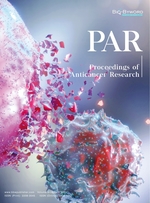Abstract
Objective: To investigate the self-efficacy and mental health of elderly patients with coronary heart disease (CHD) in rural Hebei Province as well as to analyze the relationship between them. Methods: From June 2021 to December 2021, 480 elderly patients with CHD from rural areas, who had been discharged by the Department of Cardiology from three tertiary hospitals in three cities with different economic levels in Hebei Province for more than a year, were selected as the research subjects. The general self-efficacy scale (GSES) and symptom self-rating scale (SCL-90) were used to investigate the self-efficacy and mental health of these patients. SPSS 25.0 was used for data analysis. Results: The total mean self-efficacy score of elderly patients with CHD in rural Hebei Province was 17.18 ± 4.68, which is lower than the international norm (t = -32.067, P = 0.000) and the national norm (t = -28.783, P = 0.000) ; the total average SCL-90 score was 148.64 ± 55.13, which is higher than the national norm for adults and the reference norm for ordinary elderly people; except for hostility and psychosis, the other dimensions were significantly higher than the national norm for adults (P < 0.05); except for psychosis, the other dimensions were significantly higher than the reference norm for ordinary elderly people (P < 0.05); the self-efficacy score was found to be negatively correlated with the total SCL-90 score and the score for each dimension (P < 0.05). Conclusion: Elderly CHD patients with higher self-efficacy in rural Hebei Province have higher mental health level. It is suggested that the mental health of elderly patients with CHD in rural areas can be improved by improving their self-efficacy.
References
Ma L, Wu Y, Chen W, 2019, Introduction to the Main Points of “China Cardiovascular Disease Report 2018”. Chinese Journal of Hypertension, 27(8): 712-716.
Willis E, 2016, Patients’ Self-Efficacy Within Online Health Communities: Facilitating Chronic Disease Self-Management Behaviors through Peer Education. Health Commun, 31(3): 299-307.
Ma J, Yu M, Zhao C, et al., 2020, Status and Influencing Factors of Self-Management of Patients with Coronary Heart Disease After Discharge in Rural Hebei. Modern Preventive Medicine, 47(18): 3375-3377.
Liu J, Li X, Xu C, 2021, The Mediating Effect of Self-Efficacy in Family Intimacy and Adaptability and Health Promotion Behavior of AIDS Patients. General Nursing, 19(34): 4863-4866.
Li S, Li Y, Xu Y, et al., 2021, Mental Health Status of Inpatients in General Hospitals and Its Influencing Factors. Nursing Research, 35(7): 1290-1294.
Wang CK, Hu ZF, Liu Y, 2001, General Self-Efficacy Scale for Reliability and Validity. J Appl Psychol, 7(37): 37-40.
Zhang Z, 2005, Behavioral Medicine Scale Manual, China Medical Electronic Audio and Video Publishing House, Beijing, 186-187.
Jin H, Wu W, Zhang M, 1986, Preliminary Analysis of SCL-90 Assessment Results in Normal Chinese. Chinese Journal of Neuropsychiatric Diseases, 12(5): 260.
Fang B, Gong Q, Liu C, et al., 2016, Meta-Analysis and Norm Determination of the Results of the SCL-90 Survey on Mental Health of the Elderly in the Past 10 years. Chinese Journal of Gerontology, 36(12): 3038-3040.
Zhang H, Wang Y, Tang N, et al., 2020, Mediating Role of Self-Efficacy and Self-Management Ability between Family Care and Quality of Life in Elderly Patients with Coronary Heart Disease in Rural Areas. Modern Preventive Medicine, 47(18): 3375-3377.
